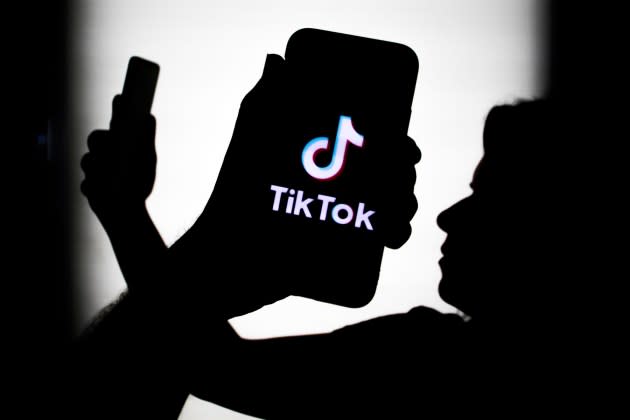TikTok Steroid Accounts Are Targeting Young Adults, New Report Claims

TikTok accounts promoting steroid consumption are thriving on the social media app — and possibly targeting young adults in the process, according to a report from the Center for Countering Digital Hate.
In a new report released Thursday, the CCDH claims that videos promoting the abuse of steroids and steroid-like drugs have been viewed at least 420 million times over the last three years by U.S users between the ages of 18 to 24, many of which promote the use and abuse of steroid—like drugs (SLDs). While TikTok’s Community Guidelines prohibit the promotion and sale of steroids and other unregulated or unprescribed drugs, CCDH claims that this rule isn’t heavily enforced on the app, an oversight that has exposed young users to steroid-promoting accounts.
More from Rolling Stone
Mad Genius Behind the Viral Song 'Sitting' Actually Prefers to Stand
Watch Penn Badgley and Kevin Bacon Join Forces for Taylor Swift TikTok Challenge
Anabolic steroids, or SLDs, are performance and appearance-enhancing drugs. According to the National Institute on Drug Abuse, while anabolic can increase muscle mass for those weight lifting or under an intense fitness regime, the trade-off can be severe, “and in some cases, irreversible damage” to the body’s major organs. Abuse of steroids can cause heart attacks, strokes, and kidney failure, and is often associated with those who have male body dysmorphic disorders. According to the 2022 Monitoring The Future national survey, 1.3 percent of seniors in high school reported misusing steroids, a number researchers believe may be linked to the number of teens getting involved in fitness and health during the 2020 pandemic. The CCDH report flags that as TikTok and other social media platforms continue to become the primary places where teens get their information and form their “sense of self,” content that violates ongoing guidelines could be extremely harmful to young viewers.
“Telling young men the only way to be a real man is to achieve a drug-dependent Avengers body type and that the only way they can do that is to take illegal and potentially deadly steroids inexorably seeps into the consciousness of our young men, infecting them with a warped sense of who they are, what they should look like, and their value as people,” CCDH CEO Imran Ahmed tells Rolling Stone in a statement.
CCDH researchers looked at 30 hashtags related to steroid use and the names of SLDs, including “steroids, peptides, and SARMs” and included them in the analysis if half of the top 20 videos promoted, sold, or normalized steroid-based drug use. According to the report, several of the most popular videos using these hashtags downplayed the health risks of taking steroids while using images of unrealistic body standards. Researchers also found videos of users who said they were under 18 and taking SLDs to gain a bodybuilding physique, which CCDH argued creates “a culture where abusing the drugs to alter body shape and size is normalized.” Much of the language also noted in the report takes a challenging bent, encouraging viewers to take the risk. “Tell your parents they’re just vitamins,” one video was labeled. “Teenagers lied about their age just to fight in WW2 but you are too scared to take S4RMs,” another was captioned.
The study also identified at least 35 TikTok accounts linked to a dozen websites selling steroid-like drugs— a web of affiliate links and anecdotal marketing that has raked in a total of 1.7 million followers and 63 million likes. According to the CCDH, these SLDs influencers have promoted websites selling SLDs, offered their followers affiliate links or promotional codes, and in some cases, openly documented positive experiences using SLDs.
When reached for comment by Rolling Stone, a spokesperson for TikTok emphasized that the app’s community guidelines prohibit the promotion and sale of steroids and SLDs and that any content that violates those rules will be removed. The spokesperson also said that CCDH’s research did not distinguish between positive and negative content associated with each hashtag, which would distort the number of views they’ve reported the negative content received.
“Young people spend hours on TikTok and other social media platforms every day, yet these platforms have failed to safeguard their wellbeing by enforcing their own rules on permissible content, and putting guardrails on the content their algorithms recommend to vulnerable people including children,” Amran adds. “These findings expose a serious problem at the heart of TikTok — but they are also indicative of a wider cultural failure of the social media industry as a whole, which prioritizes profits over people.”
Best of Rolling Stone
